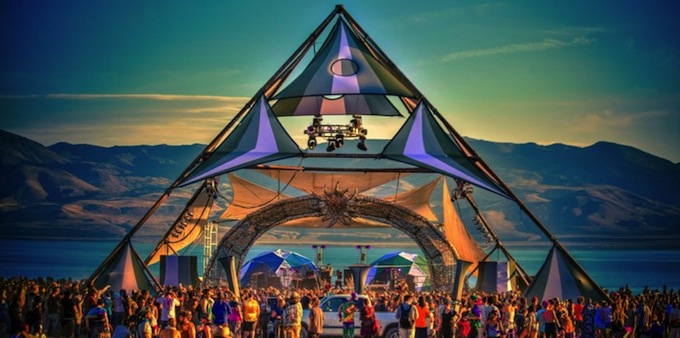Transformation” has recently become a buzzword in the festival scene. While I can appreciate being considered a transformational event, I have some difficulty in how transformation is being defined. Transformation is a messy business. Transformation is not eaten with a knife and salad fork. People can’t just ‘show up’ to a ‘transformational festival’ and ‘be transformed.
Joseph Campbell talked about the ‘Heroes Journey’ whereby the hero is beckoned to enter an unfamiliar world. When the hero enters this world, they are met with challenges, hurdles, and eventually a seemingly insurmountable confrontation which is achieved by using skills they picked up along the journey. By overcoming this obstacle, the hero attains new self-knowledge which they can bring back to their people in the ‘ordinary land’ as their gift to the world.
Common themes of ancient mystery traditions are secrecy, death of the ego, participating with archetypal reality, and a rebirth of a new self. The Eleusinian Mysteries took place over almost 2000 years and were shrouded in mystery from the uninitiated. Shamanic initiation often comes with the shaman being psychologically and experientially deconstructed and put back together. Some tribal societies had rites of passage where children are ripped away from the bosom of the mother and left in the bush to learn how to become a warrior. Rites of passage are transformational experiences where the old you is transformed into a new YOU. That’s where we want to take you, and we create the container for that transformation.
What that means is that you may come as a journalist, or a chef, or a bike messenger, or a computer programmer but for the duration of our journey, you may choose to leave that behind to lose yourself in the present in workshops, dance, yoga, and celebration. Transformation is disruptive and disorienting and actually occurs when past beliefs are shattered, habits are broken, and futures are rewritten.”
Rather than referring to transformational festivals, it seems as if “festivals that inspire individuals to do transformational work” would be more accurate, though not nearly as catchy. These festivals often serve as sources of deep inspiration and, in some cases, spiritual awakening, but the transformational work takes place as we go home to integrate these experiences into meaningful life changes. When we return to our daily lives, we either spin these inspirational experiences into memories, or we alchemize them into a whole new version of ourselves.
For instance, after Burning Man’s Exodus, the road home to the “default world” is pocked with emotional and spiritual potholes. The event environment is wildly different from home, so it’s a struggle to figure out how or if lessons and wisdom gained on the playa can be incorporated into our “regular” lives. Months after the event, some of us find that our lives aren’t much different than before while others are like aliens compared to our former selves.
Though personal transformation following a festival experience varies, the festival culture-at-large is stretching its tentacles outside event boundaries, sharing its evolutionary power with people who’ve never attended. The locus of transformational power lies within our own hearts, minds and spirits, and we carry that power with us everywhere, every day.
See more at: https://ignite.me




